- Home
- Harlan Coben
Long Lost Page 5
Long Lost Read online
Page 5
"Well?"
I did recognize it, mostly from books by Georges Simenon and because, well, I just knew it because in law-enforcement circles it was legendary.
I had entered the courtyard of 36 quai des Orfevres--the renowned French police headquarters. Think Scotland Yard. Think Quantico.
"Soooo," I said, stretching the word out, gazing through the window, "whatever this is, it's big."
Berleand turned both palms up. "We don't process traffic violations here."
Count on the French. The police headquarters was fortress solid and intimidating and gigantic and absolutely gorgeous.
"Impressive, no?"
"Even your police stations are architectural wonders," I said.
"Wait until you see the inside."
Berleand, I quickly learned, was being sarcastic again. The contrast between the facade and what lay inside was whiplash stark. The outside had been created for the ages; the interior held all the charm and personality of a public toilet along the New Jersey Turnpike. The walls were off-white, or maybe they'd been white but had yellowed over the years. They had no paintings, no wall hangings of any kind, but enough scuff marks to make me wonder if someone had maybe run across them with dress shoes. The floors were made up of linoleum that would have been deemed too dated for tract housing in 1957.
There was no elevator as far as I could tell. We trudged up a wide staircase, the French version of a perp walk. The climb seemed to take a long time.
"This way."
Exposed wires crisscrossed the ceiling, looking like central casting for a fire hazard. I followed Berleand down a corridor. We passed a microwave oven sitting on the floor. There were printers and monitors and computers lining the walls.
"You guys moving?"
"No."
He led me to a holding cell, maybe six by six. Just one. It had glass where there might normally be bars. Two benches attached to the walls formed a Vin the corner. The mattresses were thin and blue and looked suspiciously like the wrestling mats I remembered from junior high school gym class. A threadbare blanket of burnt orange, like something a bad airline had used for too long, lay folded on the bench.
Berleand spread his arm like a maitre d' welcoming me to Cafe Maxim's.
"Where's Terese?"
Berleand shrugged.
"I want a lawyer," I said.
"And I want to take a bubble bath with Catherine Deneuve," he countered.
"Are you telling me I don't have the right to have a lawyer present during questioning?"
"That's correct. You can talk to one beforehand, but he will not be present during questioning. And I will be honest with you. It makes you look guilty. It also makes me grumpy. So I would advise against it. In the meantime, make yourself comfortable."
He left me alone. I tried to think it through, not making any rash moves. The wrestling-mat mattress was sticky and I didn't want to know from what. The smell in here was rancid--that horrible combo of sweat and fear and, uh, other bodily fluids. The stench climbed into my nostrils and hung tight. An hour passed. I heard the microwave. A guard brought me food. Another hour passed.
When Berleand came back, I was leaning against a somewhat clean spot I'd found on the glass wall.
"I trust your stay was comfortable."
"The food," I said. "I expected better food, this being a Parisian jail and all."
"I will speak to the chef personally."
Berleand unlocked the glass door. I followed him down the corridor. I expected him to take me to an interrogation room, but that wasn't the case. We stopped in front of a door with a little sign next to it that read GROUPE BERLEAND. I looked at him.
"Your first name is Groupe?"
"Is that supposed to be funny?"
We entered. I figured Groupe probably meant "Group" and judging by what was inside the room I guess I was right. Six desks were crammed into an office that wouldn't be called spacious if there had been only one. We must have been on the top floor because the mansard roof caused the ceiling to slant across most of the room. I had to duck when I walked in.
Four of the six desks were currently taken by what I assumed were other officers, part of Groupe Berleand. There were old-fashioned computer monitors, the kind that took up nearly half the desk space. Family pictures, banners of favorite sports teams, a poster for Coke, a calendar with hot women--the whole atmosphere was less a top-level police headquarters and more a muffler shop backroom in Hoboken.
"Groupe Berleand," I said. "So you're the chief?"
"I'm a captain in the Brigade Criminelle. This is my team. Sit."
"What, here?"
"Sure. That's Lefebvre's desk. Use his chair."
"No interrogation room?"
"You keep thinking you're in America. We conduct all interviews in the team office."
The other officers seemed oblivious to our doings. Two were enjoying coffees and chatting. The other typed at his desk. I sat. There was a box of wipes on his desk. Berleand plucked one out and started with the hand cleaning again.
"Tell me about your relationship with Terese Collins," he said.
"Why?"
"Because I enjoy being up to date on the latest gossip." There was steel beneath the quasi-humor. "Tell me about your relationship."
"I haven't seen her in eight years," I said.
"And yet here you two are."
"Yes."
"Why?"
"She called and invited me to spend a few days in your city."
"And you just dropped everything and flew over?"
My reply was a simple eyebrow arch.
Berleand smiled. "I almost blew another French stereotype, eh?"
"You're worrying me, Berleand."
"So you came for a romantic rendezvous?"
"No."
"Then?"
"I didn't know why she wanted me to come. I just sensed that she was in trouble."
"And you wanted to help?"
"Yes."
"Did you know what she needed help with?"
"Before I arrived? No."
"And now?"
"I do, yes."
"Would you mind telling me?"
"Do I have a choice?" I asked.
"Not really, no."
"Her ex-husband is missing. He called her, said he had something urgent to discuss with her, and then he vanished."
Berleand seemed surprised by either my answer or the fact that I was being so cooperative. I had my suspicions which.
"So Ms. Collins called you to, what, help find him?"
"Exactly."
"Why you?"
"She thinks I'm good at that sort of thing."
"I thought you told me you were an agent. That you represented entertainers. How does that make you good at finding missing people?"
"My business is a rather personal one. I'm called on to do a lot of bizarre things for my clients."
"I see," Berleand said.
Lefebvre came in. He still had the toothpick. He stroked his facial growth and stood to my right and stared nails at me. Ladies and gentlemen, meet Bad Cop. I looked at Berleand as if to say, Is this really necessary? He shrugged.
"You care about Ms. Collins, don't you?"
"Yes."
Lefebvre, playing his role to the hilt, stared more nails at me. He slowly took the toothpick out of his mouth and said, "Lying sheet!"
"Excuse me?"
"You," he said with an angry, thick French accent. "You are a lying sheeet!"
"And you," I countered, "are a lying pillowcase."
Berleand just stared at me.
"Sheet," I said. "Pillowcase. Get it?"
Berleand looked mortified. Couldn't blame him.
"Do you love Terese Collins?" he asked.
I stayed on the truth train. "I don't know."
"But you're close?"
"I haven't seen her in years."
"That doesn't change anything, does it?"
"No," I said. "I guess not."
"Do you know Rick Collins?"
For some reason, hearing him say it, I was surprised Terese took his name, but of course, they met in college. It would be natural, I guess. "No."
"Never met him?"
"Never."
"What can you tell me about him?"
"Not a damn thing."
Lefebvre put his hand on my shoulder and squeezed just a little. "Lying sheeet."
I looked back at him. "Please tell me that's not the same toothpick from the airport. Because if it is, we are talking seriously unsanitary."
Berleand said, "Is Ms. Collins correct?"
I turned back to him. "About what?"
"Are you good at finding people?"
I shrugged. "I think I know where Rick Collins is."
Berleand looked at Lefebvre. Lefebvre stood a little straighter.
"Oh? Where is he?"
"A nearby morgue," I said. "Somebody murdered him."
7
BERLEAND took me out of the Groupe Berleand office and turned right.
"Where are we going?" I asked.
He wiped his hands on his pants legs and said, "Just follow me."
We walked in a corridor with an opening that dropped down five floors. A steel net covered the space.
"What's up with the net?" I asked.
"Two years ago we brought in a terrorist suspect. A woman, as a matter of fact. When we walked her down this hallway, she grabbed one of the guards and tried to throw them both over the railing."
I looked down. It was a long drop.
"They die?"
"No, another officer grabbed them by the ankles. But now we have the netting."
He took two steps up into what appeared to be the attic. "Watch your head," Berleand said to me.
"Terrorist suspect?"
"Yes."
"You guys do terrorism?"
"Terrorism, homicide, the boundaries are no longer so clear. We do a little of everything."
He entered the attic space. I had to duck big-time now. There were clothes on a drying line. "You guys do your laundry up here?"
"No."
"So whose clothes?"
"Victims. That's where we hang them."
"You're kidding, right?"
"No."
I stopped and looked at them. A dark blue shirt was ripped and covered with bloodstains. "Do these belong to Rick Collins?"
"Follow me."
He opened a window and stepped outside onto the roof. He turned and looked back for me to follow.
Again I said, "You're kidding, right?"
"One of the great views of Paris."
"From the roof of 36 quai des Orfevres?"
I stepped out onto the slate--and wow, was he right about the view. Berleand lit a cigarette, sucked in a breath so deep I thought the entire cigarette might turn to ash, released it in a long stream through his nose.
"Do you often interrogate up here?"
"To be honest, this is a first," he said.
"You could threaten to push someone off."
Berleand shrugged. "Not my style."
"So why are we here?"
"We are not allowed to smoke indoors and I desperately need a cigarette."
He took another deep breath.
"I used to be okay with it, you know? Smoking outside only. I would jog up and down the five flights of stairs as my way of exercising. But then I'd be so out of breath from the cigarettes."
"It would cancel each other out," I said.
"Exactly."
"You might have considered quitting."
"But then I wouldn't have a reason to run down the stairs and so I wouldn't exercise. Follow me?"
"As much as I'd like to, Berleand."
He sat down and looked out. He gestured for me to do the same. So there I was, on the roof of one of the world's most famous police stations, staring at the most breathtaking view of Notre Dame.
"And look that way."
He pointed over his right shoulder. I looked over the Seine and there it was--the Eiffel Tower. I know how touristy it is to be awestruck by the Eiffel Tower, but I just stared for a moment.
"Amazing, no?" he said.
"Next time I get arrested, I need to bring a camera."
He laughed.
"Your English is really good," I said.
"We are taught here from a young age. I also spent a semester at Amherst College in my youth and worked two years in an exchange program with Quantico. Oh, and I have the entire Simpsons collection on DVD in English."
"That will do it."
He took another hit from the cigarette.
"How was he murdered?" I asked.
"Shouldn't I say something like, 'Aha, how do you know he's been murdered?' "
I shrugged. "Like you said, you don't process parking violations here."
"What can you tell me about Rick Collins?"
"Nothing."
"How about Terese Collins?"
"What do you want to know?"
"She's quite beautiful," he said.
"That's what you want to know?"
"I did a little research. We have CNN over here, of course. I remember her."
"So?"
"So about a decade ago she was at the top of her profession. Suddenly she quits and there isn't a Google mention of her again. I checked. There is no sign of employment. I can't get a residence, nothing."
I didn't reply.
"Where has she been?"
"Why don't you ask her?"
"Because right now, I'm asking you."
"I told you. I haven't seen her in eight years."
"And you had no idea where she was?"
"I didn't."
He smiled and wagged his finger at me.
"What?"
"You said 'didn't.' Past tense. That implies you now know where she was."
"Your good English," I said. "It has come back to haunt me."
"So?"
"Angola," I said. "Or at least, that's what she told me."
He nodded. A police or French siren went off. The French have a different siren than we do--more insistent, horrible, like the love child of a cheap car alarm and the wrong-answer buzzer on Family Feud. We let it shatter our silence and waited for it to fade away.
I said, "You made some calls, didn't you?"
"A few."
"And?"
He didn't say anything else.
"You know I didn't kill him. I wasn't even in the country."
"I know."
"But?"
"May I offer another scenario?"
"Shoot."
"Terese Collins murdered her ex-husband," Berleand said. "She needed a way to dispose of the body--someone she could trust to help clean up the mess. She called you."
I frowned. "And when I answered, she said, 'I just killed my ex-husband in Paris, please help me'? "
"Well, she might have just told you to fly here. She might have told you the purpose after you arrived."
I smiled. This had gone on long enough. "You know she didn't tell me that."
"How would I know that?"
"You were listening in," I said.
Berleand didn't face me then. He just kept smoking the cigarette and looked out at the view.
"When you stopped me at the airport," I continued, "you put a bug on me somewhere. My shoes maybe. Probably my cell phone."
It was the only thing that made sense. They found the body, maybe checked Rick Collins's cell phone or whatever, found out his ex-wife was in town, put a tap on her phone, saw that she called me, held me up at the airport long enough to put on a bug and start surveillance.
That was why I had been so forthcoming with Berleand--he already knew all these answers. I'd been hoping to win his trust.
"Your cell phone," he answered. "We replaced the battery with a listening device that holds the same charge. It's very new technology, quite cutting edge."
"So you know Terese thought her ex was missing."
He tilted his head
back and forth. "We know that's what she told you."
"Come on, Berleand. You heard her tone. She was genuinely distraught."
"She seemed to be," he agreed.
"So?"
He crushed out the cigarette. "You could also hear that she was holding back," Berleand said. "She's lying to you. You know it, I know it. I hoped that maybe you'd work it out of her, but you spotted the van." He thought about it. "And that's when you realized that you were bugged."
"So we're both very clever," I said.
"Or not as clever as we think."
"Have you notified his next of kin?"
"We're trying."
I aimed for subtle, but then again I thought we were somewhat past that. "Who is the next of kin?"
"His wife."
"Do you have a name?"
"Please don't push it," Berleand said.
He took out another cigarette, stuck it between his lips, let it dip down as he lit it with a hand that had done this many times before.
"There was blood found at the scene," he said. "Lots of it. Most belonged to the victim, of course. But preliminary tests tell us that there is at least one more person's blood in the mix. So we have gathered a blood sample from Terese Collins, and we will run the proper DNA test."
"She didn't do it, Berleand."
He said nothing.
"There's something else you aren't telling me," I said.
"There is a lot I'm not telling you. You, alas, are not part of Groupe Berleand."
"Can't I be deputized or something?"
He made that mortified face again. Then: "It can't be a coincidence," he said. "Him being murdered right after his ex-wife arrives."
"You heard what she told me. Her ex sounded scared. He'd probably gotten himself into some kind of mess--that's why he called her in the first place."
We were interrupted by the trill of his cell phone. Berleand unfolded it, put it to his ear, and listened. He probably made a hell of a poker player, my new friend Berleand, but something crossed his face and stayed there. He barked out something in French, clearly annoyed or puzzled. Then he went silent. After a few moments, he snapped the phone closed, stubbed out his cigarette, and stood.
"Problem?" I said.
"Take one last look." Berleand brushed off his pants with both hands. "We don't let a lot of tourists up here."
I did. Some might find it odd, this police headquarters with its spectacular view. I decided to take the moment and look out and remember why murder was such an abomination.
"Where are we going?" I asked.
"The lab received preliminary results on the DNA from the blood."
"Already?"
He shrugged a little too theatrically. "We French are about more than wine, food, and women."

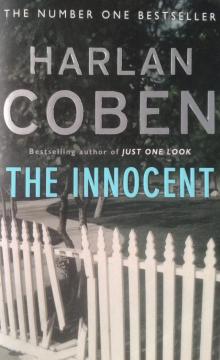 The Innocent
The Innocent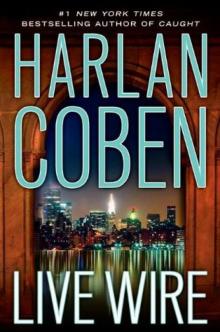 Live Wire
Live Wire Play Dead
Play Dead Drop Shot
Drop Shot Seconds Away
Seconds Away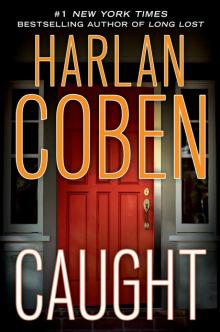 Caught
Caught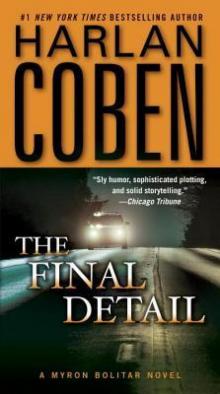 The Final Detail
The Final Detail Fade Away
Fade Away Home
Home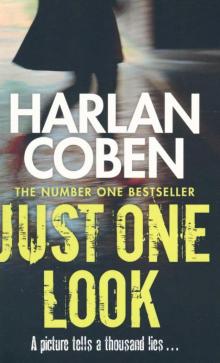 Just One Look
Just One Look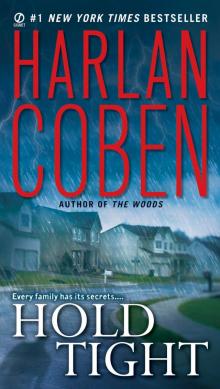 Hold Tight
Hold Tight Fool Me Once
Fool Me Once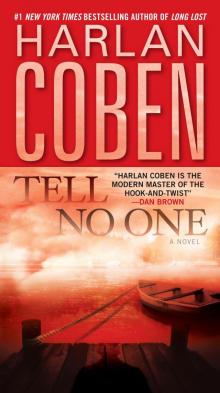 Tell No One
Tell No One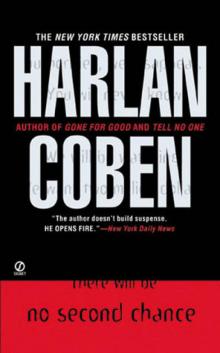 No Second Chance
No Second Chance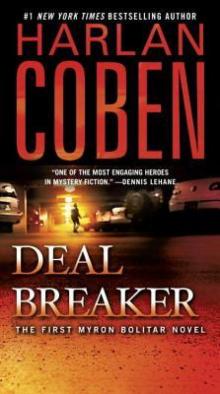 Deal Breaker
Deal Breaker Long Lost
Long Lost One False Move
One False Move The Woods
The Woods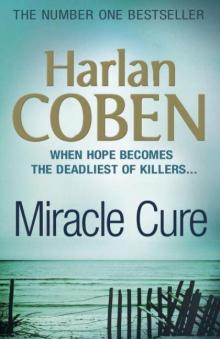 Miracle Cure
Miracle Cure Found
Found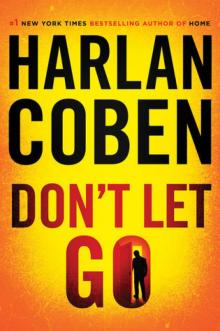 Don't Let Go
Don't Let Go Darkest Fear
Darkest Fear The Stranger
The Stranger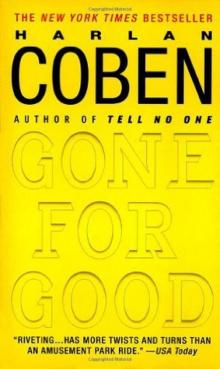 Gone for Good
Gone for Good Back Spin
Back Spin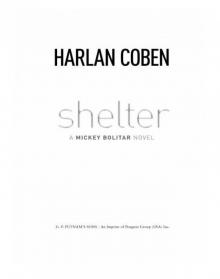 Shelter
Shelter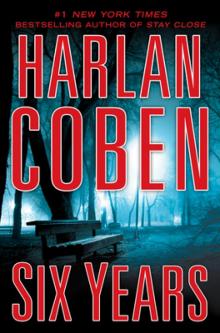 Six Years
Six Years The Boy from the Woods
The Boy from the Woods Missing You
Missing You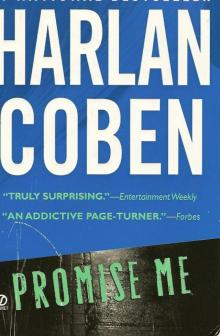 Promise Me mb-8
Promise Me mb-8 The Final Detail: A Myron Bolitar Novel
The Final Detail: A Myron Bolitar Novel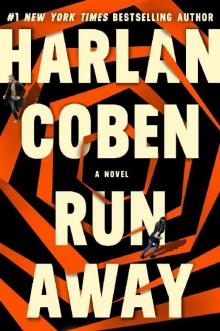 Run Away
Run Away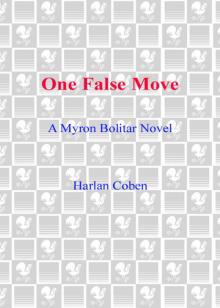 One False Move: A Myron Bolitar Novel
One False Move: A Myron Bolitar Novel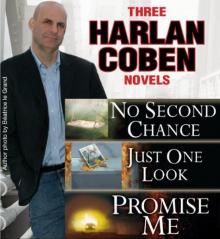 Three Harlan Coben Novels
Three Harlan Coben Novels the Woods (2007)
the Woods (2007) Tell No One (2001)
Tell No One (2001) the Innocent (2005)
the Innocent (2005)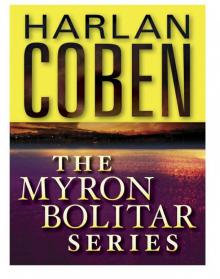 The Myron Bolitar Series 7-Book Bundle
The Myron Bolitar Series 7-Book Bundle Gone for Good (2002)
Gone for Good (2002) Caught (2010)
Caught (2010) Hold Tight (2008)
Hold Tight (2008)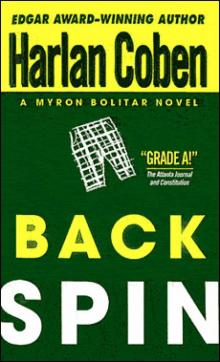 04 - Back Spin
04 - Back Spin Miracle Cure (1991)
Miracle Cure (1991) Harlan Coben 3 Novel Collection
Harlan Coben 3 Novel Collection Just One Look (2004)
Just One Look (2004)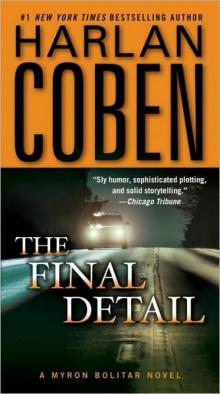 The Final Detail mb-6
The Final Detail mb-6 Play Dead (2010)
Play Dead (2010)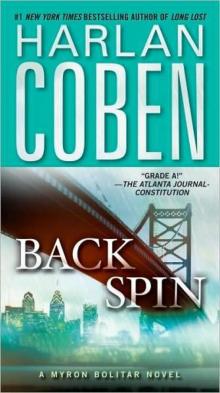 Back Spin mb-4
Back Spin mb-4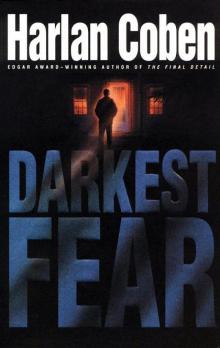 Darkest Fear mb-7
Darkest Fear mb-7